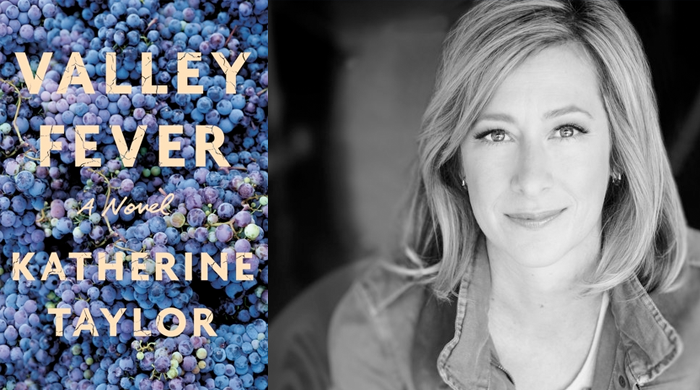This sensory novel explores heartbreak and home as protagonist Ingrid Palamede navigates a torturous landscape where brawn, swagger and grapes rule. Lush with quirky characters and vivid scenes, “Valley Fever” takes us into the hearts of a close-knit community, a lovably flawed family and a spirited heroine.
Ingrid has no place of her own to seek refuge when her boyfriend dumps her after she’s moved in. She turns first to her sister in L.A., then heads north to her childhood home in Fresno to forget Howard’s character flaws (“his stupid flat stomach” and “the idiot way he brought [her] coffee in bed”). In the city she loves to hate, Ingrid mourns her relationship, pens a genocide comedy and slowly recognizes that her parents are grappling with heartbreaks of their own.
The dialogue is appealingly droll and author Katherine Taylor, thankfully, doesn’t spend much time parsing Ingrid’s interior life in the aftermath of the breakup. There are grapes to pick, after all, and we’re quickly immersed in action on the farm. Ingrid’s dad is a great farmer who has 20,000 acres at risk, hurt by his aversion to business and reliance upon antiquated gentlemen’s agreements. Her mother plays solitaire in worn hotel slippers and “doesn’t even care for the people she likes.” Her godfather Felix, known for his ruthlessness and criminal company (her father excluded), warns: “You think you’ve got more than two friends, you’re fooling yourself.”
Ingrid stumbles, but never shrivels, in the 100-degree heat. It’s a testament to Taylor’s skill in describing the Fresno landscape that Ingrid’s hard-knock education in pricing and negotiations is as memorable for the vineyard backdrop as for Ingrid’s personal development.
Taylor masterfully builds a story to be savored by grounding the enormity of the Palamede family’s challenges in the steady rhythms of daily life. Her research shows in spot-on depictions of the tastes that enliven the community: The hot sweetness of end-grapes picked right from the vine. The perfect bite of prosciutto cured from almond-fed pigs. Vodka poured over table grapes by valley farmers hesitant to drink anything but California wine. In Taylor’s account, even betrayal captures the senses. It tastes like cold-poached Alaskan salmon and smells like cigars and grease.
This is a lovely quick read–well-imagined and well-written. Pair with an old Mondavi, Ingrid’s drink of choice.
If this post resonates with you, I bet you’ll enjoy my newsletter. I regularly send bookish news and notes out to more than 1,000 readers. Sign up here.


